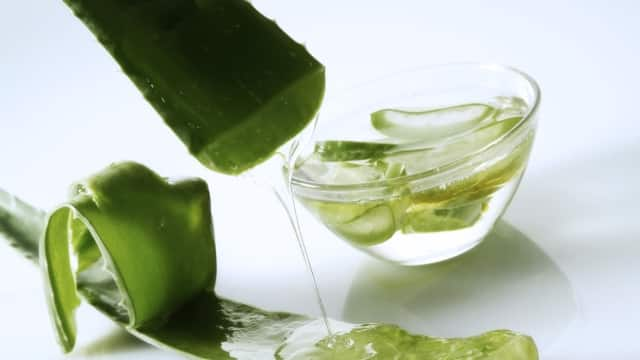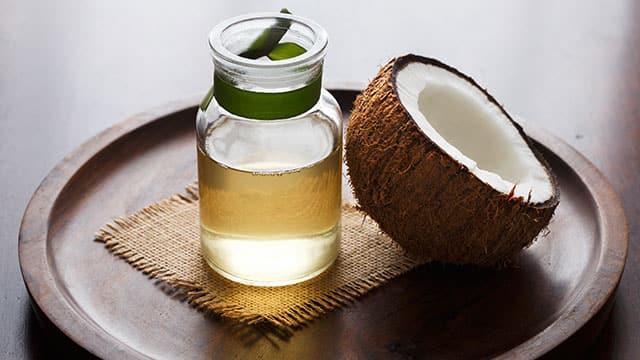Why does mouthwash burn? It most likely has to do with the ingredients in the mouthwash you're using. Some mouthwashes have ingredients that are linked to burning or discomfort in the mouth. Figuring out what's causing the burning feeling will help you decide what to do next.
What's in Mouthwash?
As the American Dental Association (ADA) notes, the ingredients in mouthwash vary considerably based on the product and type of mouthwash you're using. The ADA divides mouthwashes into two categories: cosmetic and therapeutic. Cosmetic mouthwashes freshen your breath for a bit, but they don't help to improve the health of your teeth or gums. Therapeutic mouthwashes freshen your breath and will also help to reduce plaque and fight cavities and gingivitis.
The active ingredients in mouthwash are included for a purpose: Each has a specific job to do. According to the ADA, these are some of the ingredients you might find in a therapeutic mouthwash:
- Cetylpyridinium chloride: This ingredient helps to improve bad breath, and it has antimicrobial properties that can help to reduce plaque in the mouth.
- Chlorhexidine: This can improve gum health by controlling gingivitis. You can't purchase a mouthwash with chlorhexidine over the counter, but a dentist can prescribe it to you.
- Essential oils: These can also improve gum health by controlling gingivitis.
- Fluoride: This is often added to mouthwash to prevent dental decay and cavities.
- Peroxide: This ingredient helps to whiten teeth.
Read the label on your mouthwash to see what active ingredients are included. In addition to these ingredients, many types of mouthwash also contain alcohol.
Why Does Mouthwash Burn?
If you're using mouthwash and wondering why it burns, one of two ingredients may be causing your discomfort: alcohol or chlorhexidine.
As a study published in the Journal of International Society of Preventive & Community Dentistry (JISPCD) notes, the presence of alcohol in mouthwash often causes a burning sensation in the mouth. The study also points out that a mouthwash containing chlorhexidine resulted in a burning feeling in the mouth in a "high percentage" of individuals. Once people stopped using the mouthwash that contained chlorhexidine, the burning sensation usually cleared up.
What Can You Do if Mouthwash Irritates Your Mouth?
While it's definitely a drag when something that's supposed to help you causes you discomfort, there are things you can do if you think an ingredient in your mouthwash is making your mouth burn. If you're using a mouthwash with chlorhexidine prescribed by your dentist, let them know that you're experiencing discomfort and ask if there are other options you can try. They might recommend an over-the-counter product to you, or they might want to try another course of treatment.
If you're using an over-the-counter mouthwash that contains alcohol and you've noticed a burning sensation in your mouth, it's still a good idea to talk to your dentist. They can examine your gums to rule out any other causes. They can also recommend products to you that might cause less irritation, such as an alcohol-free mouthwash. As the JISPCD study explains, alcohol is commonly used as a solvent in mouthwash. The concentration of alcohol is low enough that it doesn't have an antiseptic or medicinal effect, so an alcohol-free formula may suit your needs just as well.
How to Keep Your Mouth Healthy
Mouthwash has its benefits, but it's just one part of a great oral care routine. As the Mayo Clinic points out, using a mouthwash that contains fluoride can help to promote oral health, but it shouldn't replace daily flossing or brushing your teeth twice a day. If you find that every mouthwash you try causes irritation, and you've talked to your dentist, you might discover that skipping mouthwash and focusing on brushing and flossing is what you need to do to keep your mouth as healthy and comfortable as possible.
This article is intended to promote understanding of and knowledge about general oral health topics. It is not intended to be a substitute for professional advice, diagnosis or treatment. Always seek the advice of your dentist or other qualified healthcare provider with any questions you may have regarding a medical condition or treatment.
ORAL HEALTH QUIZ
What's behind your smile?
Take our Oral Health assessment to get the most from your oral care routine
ORAL HEALTH QUIZ
What's behind your smile?
Take our Oral Health assessment to get the most from your oral care routine















